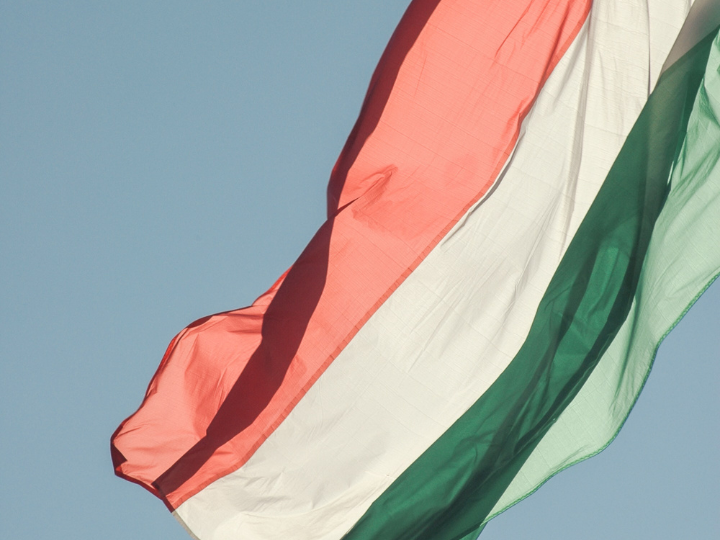by Julia Dahm, Sarantis Michalopoulos and Vlad Makszimov
Russia’s war on Ukraine would not have happened if former German Chancellor Angela Merkel was still in office, Hungarian Prime Minister Viktor Orban said during a visit to Berlin, where he met with both Merkel and current Chancellor Olaf Scholz.
When Merkel announced that she would retire from politics, Orban published a letter on his website saying the then-German Chancellor “understood us” and “we understood her”.
Germany is Hungary’s main trading partner, accounting for approximately 27% of trade volume, while some 3,000 German companies are currently present in Hungary.
Merkel’s reaction to the 2014 crisis triggered by Russia’s illegal annexation of Crimea was “a master stroke,” Orban told a public event in Berlin on Tuesday (11 October), explaining that a war could have broken out at the time but was avoided due to the German chancellor’s actions.
“Thank you, Angela!” he added.
Asked whether this means the current war would have been prevented if the conservative ex-chancellor was still in office, Orban said: “for certain.”
Merkel, meanwhile, has been criticised since the onset of the Ukraine war for failing to reduce energy dependency from Russia and maintaining close economic ties with Moscow during her 16-year rule.
Nord Stream 2 pipeline, for many, Europe’s Achilles’ Heel, was a thorny issue during Merkel’s mandate.
The pipeline, which aimed to carry 55 billion cubic meters of Russian gas to Germany, was backed by Merkel but is now frozen due to Russia’s invasion of Ukraine.
Back then, eastern European countries opposed the project, but Hungary did not voice any significant opposition.
Expected war
While tensions were simmering between the West and Russia, Orban went to Moscow on 1 February on a self-ascribed ’peace mission’ where he blasted the ineffectiveness of the EU’s punitive sanctions and hailed his successful relations with Putin.
After that meeting, Orban told journalists, “Russia’s needs are known to the whole world, and it is clear that the response to them does not meet them”.
He now has held his ground, saying it was a mistake no one on the Western side felt the need to negotiate.
Orban is seen as one of the most pro-Russian leaders in the EU. During the event, he advocated holding diplomatic talks with Russia and working towards a ceasefire as quickly as possible.
While Orban dismissed allegations he was favouring Russia, saying Moscow’s invasion was an ’act of aggression’,
Orban added that in their February conversation, Putin saw the Ukrainian army as well trained and equipped “by Americans and British”, adding Washington was supplying intelligence to Kyiv.
While maintaining the Russian leader did not openly admit his intentions to invade, “I saw there was trouble”, Orban said, according to EURACTIV’s media partner Telex’s reporting.
Orban explained he went to NATO, where he reported that “there was trouble.” When the war started on 24 February, “I just said that it was what we expected.”
His assessment stands in sharp contrast with the narrative of EU officials. The bloc’s top diplomat Josep Borrell told EU ambassadors on Monday, “we did not believe that the war was coming”.
Trump to the rescue
Echoing previous comments, the Hungarian prime minister called Brussels’ sanctions policy against Russia primitive in its design and disastrous in its effects.
He believes that the policy of sanctions needs to be rethought and that an energy supply system needs to be developed in which the EU does not merely “change hands”, replacing Russian dependence with American dependence – which is politically “convenient but not good” – but gains independence.
Orban added former US president Donald Trump could end the war in Ukraine.
“This is going to sound brutal, but hope for peace goes by the name of Donald Trump”, he said.
German executive on down-low
According to German media reports, Orban met with Merkel on Sunday, even before his official talks with current Chancellor Olaf Scholz on Monday. However, neither party publicly confirmed the meeting.
Meanwhile, public information on Orban’s meeting with Scholz on Monday also remained scarce. The German government neither held a joint press conference nor published a statement after the meeting – both standard practice for foreign leaders’ visits.
Orban, on his part, said via his newly created Twitter account that he and Scholz held “good discussions, but we still have a long way to go.”
From an ideological point of view, Orban’s Fidesz party is in clash with German social democrats.
In an interview with EURACTIV Italy before the Italian elections, Udo Bullmann, a German MEP from social democrat SPD and former S&D chief, had said a “radical right-wing government in Italy could open the door to an ‘Orbanisation’ of democracy in an EU-founding state“, which would put “us back on the illiberal economic past, strengthening the illiberal sides of the society and deepening the inequalities”.
*first published in: Euractiv.com




 By: N. Peter Kramer
By: N. Peter Kramer

